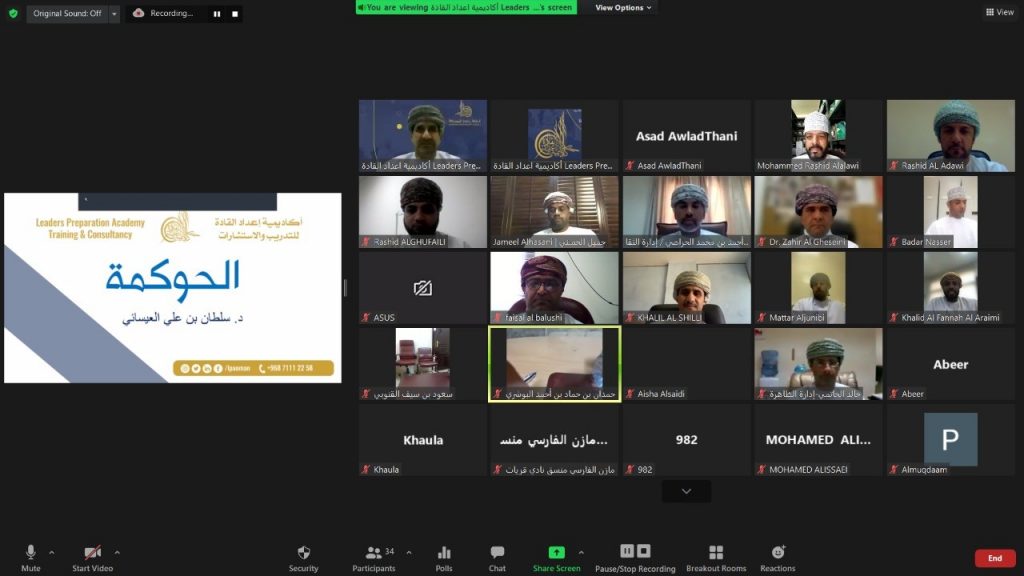The Ministry of Culture, Sports and Youth represented by the Leadership Development Center, in cooperation with the Leadership Development Academy, carried out a virtual seminar entitled “Governance” during the period from 20 to 22 September, with the participation of 40 participants representing sports federations from the newly elected, members of sports clubs and directors of directorates and departments in the Ministry.
Saif bin Saeed Al-Shibli, Director of the Leadership Development Center, explained that the center aims, through the course, to prepare a generation of sports and youth leaders who are familiar with the strategic objectives of governance, improve individuals’ knowledge, raise their efficiency, and increase productivity in work at the level of managing sports institutions and qualifying effective leaders in the sports field. The course was organized in the field of governance based on the importance of this axis – which is one of the axes of the Oman 2040 vision on which it is based – because of the many positives of governance that benefit the ministry and sports institutions.
The number of participants in the course reached forty participants from various sectors of sports and youth in cooperation with the Leadership Development Academy, which is a leading institution in training work. The course was attended by Dr. Sultan bin Ali Al-Esai, who holds a doctorate in administrative justice and a master’s degree in law, and previously worked as an advisor to the Minister of Regional Municipalities and the Environment. The session dealt with several axes, the most important of which is the nature of governance, which was addressed by the lecturer on the first day of the session; In it, he listed a number of definitions, strategic objectives of governance, and tools for implementing governance. He moved on the second day to talk about the legal framework for governance and the practical construction of governance, while the focus on the last day was about the general outputs of governance, such as compliance with the law and the general order of the institution, as well as adjusting policies and regulations in the provision of services in addition to managing operations, improving the level of the institution and protecting the rights of customers.










